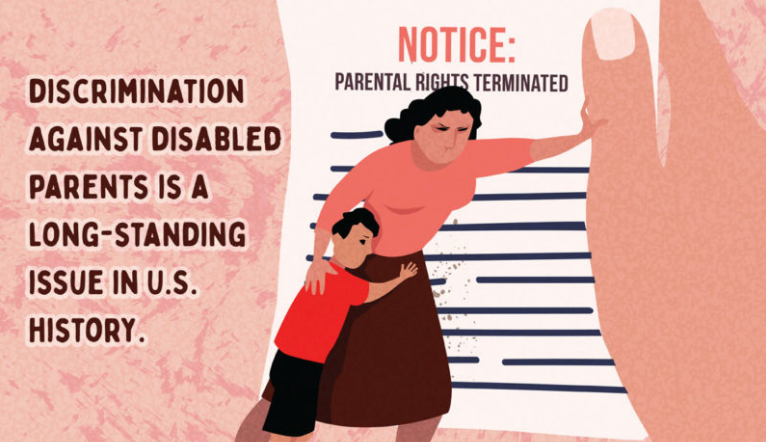In a landmark case that challenges perceptions and policies regarding parenting with disabilities, Sara Gordon, a mother with an IQ of 70, successfully fought against the Massachusetts Department of Children and Families (DCF) to regain custody of her daughter, Dana. This case highlights critical issues surrounding parental rights and the treatment of disabled individuals within the child welfare system.
The Beginning of Sara’s Battle
Sara Gordon’s ordeal began shortly after the birth of her daughter in 2012. While at the hospital, the nursing staff grew concerned about Sara’s ability to care for her newborn. Noticing her struggle with a feeding chart and missing a feeding due to difficulty reading an analog clock, the hospital staff contacted DCF. A social worker assigned to the case raised concerns about Sara’s parenting abilities, citing instances where she forgot to burp and clean Dana and struggled with changing the baby’s diaper.

Consequently, DCF determined that Sara was not capable of parenting, a decision that led to Dana being placed in permanent foster care with a Mennonite family. This action by DCF sparked a long and challenging legal battle for Sara, as she strived to prove her ability to parent her child.
Sara’s Response to DCF’s Decision
Determined to reunite with her daughter, Sara rigorously followed all the requirements set by DCF, including individual counseling and parenting classes. She even took a CPR course independently to demonstrate her competence and commitment as a parent. Despite these efforts, DCF maintained its stance, leaving Sara and her family with no option but to fight back.
In 2014, Sara filed a discrimination lawsuit against DCF, challenging the department’s decision to remove Dana from her care. She sought assistance from Kelly Buckland, director of the National Council on Independent Living, who emphasized that parenting is a fundamental human right. Buckland highlighted the need for individual assessment in cases involving disabled parents.
The Turning Point in Sara’s Case
Sara’s persistent efforts garnered attention from lawyers at the Department of Justice (DOJ) and Health and Human Services (HHS). These lawyers, upon reviewing Sara’s case, identified violations of the Americans with Disabilities Act. Their involvement proved to be a turning point, leading to a reassessment of Sara’s situation.
A Resolution and Reunion
The intervention from DOJ and HHS lawyers resulted in a reversal of DCF’s decision. This change was informed by a letter that pointed out the ongoing violations against Sara’s rights under the Americans with Disabilities Act. The outcome was a joyful reunion for the Gordon family, with Sara regaining custody of Dana. Sara now lives with her parents, who assist her in raising her child.
Read More:
- Michelle Obama Reflects on 2024 Election Concerns, Leadership, and Democracy on ‘On Purpose’ Podcast
- Royalist Social and Civic Club Inspires Joy with Free Bikes for Wheatley Elementary Students
- D.C. Man Arrested in Arlington for Larceny and Fleeing onto Metro Tracks
Sara Gordon’s case is more than just a personal victory; it is a significant moment in the discourse on the rights of disabled individuals as parents. It challenges societal perceptions and institutional practices, advocating for a more nuanced and compassionate approach to parenting assessments for disabled individuals. This case reaffirms the principle that disability should not automatically preclude an individual from the right to parent, emphasizing the importance of individual evaluation and support.
Sara’s journey is a testament to the power of perseverance, legal advocacy, and the necessity of upholding the rights of all individuals, regardless of their disabilities. Her story serves as an inspiration and a call to action for a more inclusive and equitable treatment of disabled parents within the child welfare system.

